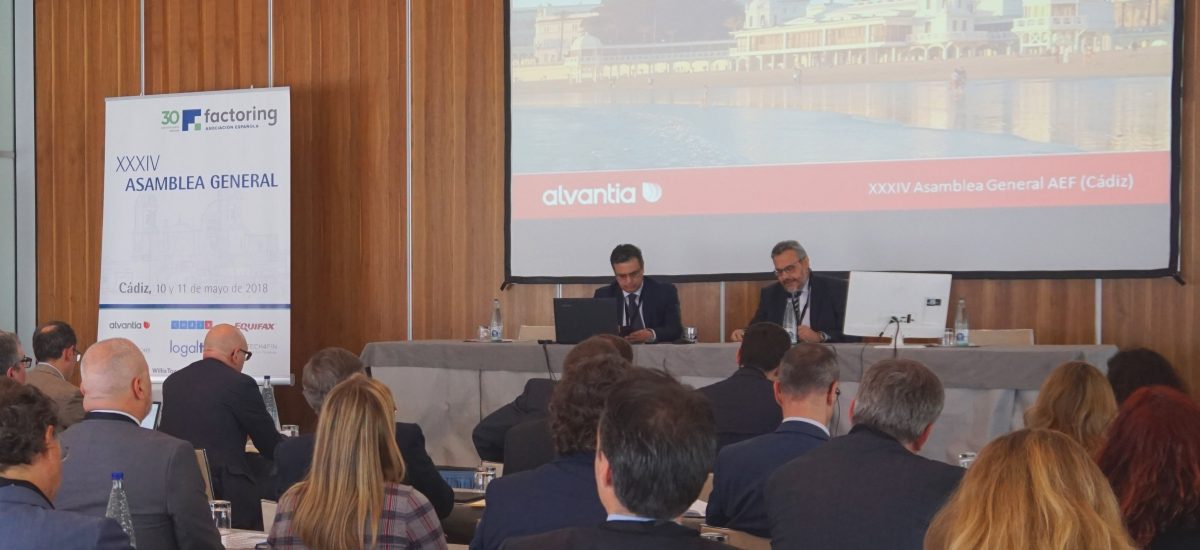On 10 and 11 May, the Spanish Factoring Association (AEF) held its thirty-fourth General Meeting, an event sponsored by Alvantia, bringing together the main stakeholders in Commercial Financing in Spain, in order to showcase the sector’s activities. The Parador in Cádiz was the venue chosen for this year’s edition, which highlighted the sector’s favourable results in a year marked by economic growth and the 30th anniversary of the AEF.
In his opening speech, Carlos García Casas, the President of AEF, praised the efforts made by association members to create two working groups: the first to carry out a market study on the penetration of Factoring and Confirming in smaller companies; and the second for defining a single voluntary format for Confirming which will facilitate and simplify the management of this financial service for clients. This standardised format is universal, global and simple; it is in .txt format (XML in the future) and avoids any duplication of information. 90% of AEF‘s organisations have accepted the proposal for this single format, which will probably be implemented in the fourth quarter of 2018.
Alvantia took part in the event with a speech given by its CEO, Roberto Gutiérrez, and Business Manager José Antonio Garrote, who presented specific proposals for the future of the sector, grouped into three themes: automatic learning based on experience (Machine Learning), supplier onboarding and the digitisation of the business.
Machine Learning is a technology that is used by the commercial financing sector in many applications, from early risk detection to preventing money laundering, and including information systems both for organisations and for clients and suppliers, as well as marketing-support systems.
Supplier onboarding subjects under discussion included refining supplier identification (KYC, or Know-Your-Client), automating and improving the security of the exchange of information and documents, and optimising the monitoring and control of the supplier register.
Lastly, in terms of digitising the business, Alvantia proposed removing barriers and establishing bridges of communication using API technology. Digitisation will also enable the optimisation of self-service for clients and suppliers, while improving the automation of processes, which would result in a reduction of operational burdens and risks, as well as costs, in addition to ensuring the traceability of operations.
The sector’s results for 2017 were also announced during the Meeting. The volume of transfers reached a figure of €146.292 billion. This figure means growth of 13% compared to the previous year, easily beating the average economic growth for Spain. Factoring increased by 12.8% and Confirming by 13.2%, reaching €75.295 billion and €70.998 billion respectively. Around 65% of the national financing of working capital is currently carried out through Factoring and Confirming.
The last financial year was also marked by the approval of the Public Sector Contracts Act and the approval of various notices by the Bank of Spain, which involve changes in the management of financial organisations, as well as for Public Administration initiatives in terms of e-invoicing, in which the AEF has taken part.
Other subjects of current interest analysed during the Meeting included digital innovation in financial services, compliance with new European data-protection regulations (GDPR) and the evolution of economic growth in the eurozone, with blockchain, digital banking, open banking and Artificial Intelligence (AI) featuring prominently.


